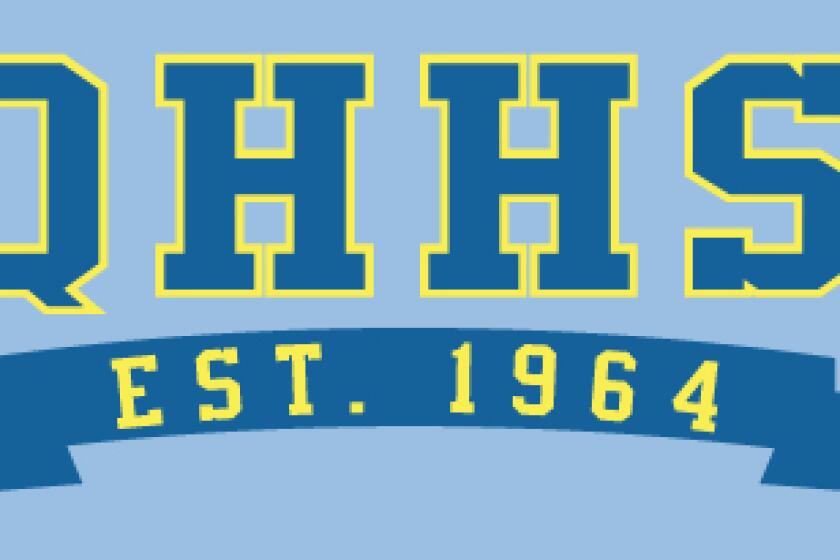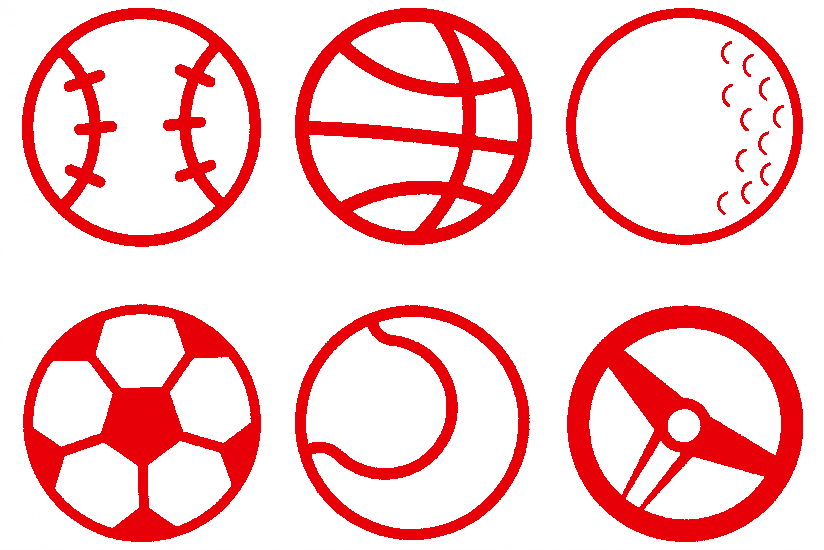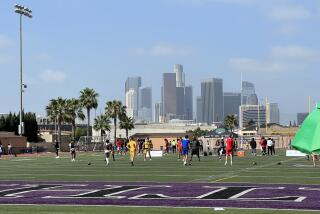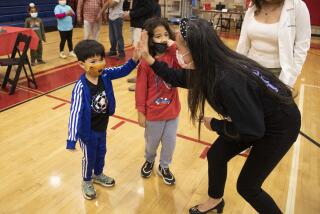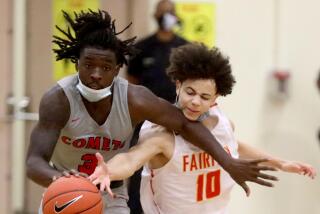L.A. Cathedral High to require COVID-19 tests to play sports
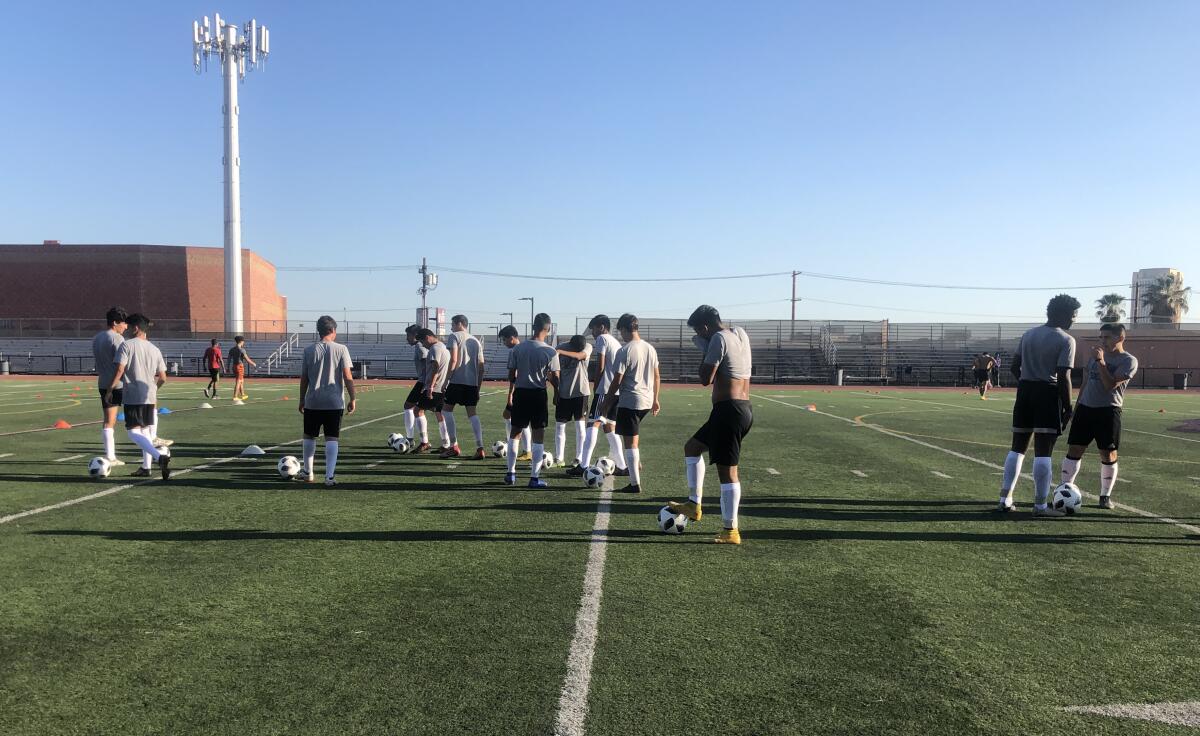
- Share via
Since the start of the COVID-19 pandemic, Los Angeles Cathedral High Principal Brother John Montgomery has tried to be as proactive as possible.
When early guidelines from federal and local health agencies differed, he sided with the strictest recommended regulations and shut down the school and its sports teams in mid-March. When it became clear students wouldn’t be back on campus until at least the fall, he purchased two temperature-check kiosks and a spray disinfectant machine, fearful social distancing and mask-wearing alone might not be enough.
And now, as his sports teams begin to prepare for a return to practice this summer, he has taken a seemingly unprecedented step for prep sports in the Southland, requiring all of his athletes and coaches to test negative for COVID-19 before being allowed to participate.
“Your result says you’re negative, you’re cleared to come on my campus to work out,” he said. “Until then, you cannot work out. That’s how strongly I feel about it.”
While testing requirements have been central to restart plans in professional and college sports, it has yet to be instituted on any large scale among Southern California high school teams.
Several schools around Los Angeles have already begun holding offseason athletic activities on campus, including Chatsworth Sierra Canyon, West Hills Chaminade and Mission Hills Bishop Alemany among others. Each has introduced some level of social distancing and coronavirus-aware protocols to their practices. But no other Southland school is known to be going as far as Cathedral, the private all-boys Catholic college preparatory near downtown.
Quartz Hill High in the Antelope Valley has dropped “Rebels” as its mascot. A new mascot has not been selected.
“I think we’re sending a mixed message between what L.A. County Health is saying about being cautious and the rush to get kids back just to play sports,” Montgomery said of Southland prep sports at large, worried that a mismanaged return of high school athletics could trigger a spike of cases among players. “I love sports, but you better do it in a safe manner.”
Montgomery, who has yet to decide whether to require tests from his entire student body this upcoming school year, took into account the relative ease of access to testing in Los Angeles, where both the city and county offer it free regardless of symptoms. One of the area’s largest testing sites is at Dodger Stadium, just across the 110 Freeway from Cathedral’s campus.
Montgomery knows one-time testing won’t stop a potential outbreak. But he hopes it sends a message to his athletes and others in the area, potentially promoting the type of health-conscious behavior that could curb the spread of the disease.
“You’ve got to be unselfish, you’ve got to think about other people,” he said, adding: “Wearing a mask, having a COVID test is one way of showing compassion and care for others. If we can be more caring for others, we’re better off.”
The coronavirus crisis has left the region’s prep sports in a state of uncertainty. Many teams are allowed to begin offseason training, but the California Interscholastic Federation won’t decide until July 20 whether fall sports, including football, will go off as scheduled.
According to CIF Southern Section Commissioner Rob Wigod, the next few weeks will be crucial to that determination.
“If we’re seeing that [returning to practice] is able to be done and we’re not seeing student-athletes are at risk or there’s problems with getting back together, that would be encouraging,” he said. “If we see if there are problems and things have happened since [we’ve returned], then we have to be aware of that and evaluate that.”
A return to practice, however, has not yet meant a return to normal. When Sierra Canyon’s football team reconvened last week, the first to do so in L.A. County, the players trained in separate physically distanced groups and didn’t even use a football. Cathedral’s football team will follow similar safety measures when it begins conditioning sessions July 6, according to coach Anthony Jefferson.
“The most important thing is the safety for the kids,” said Jefferson, whose plans also include disposable gloves for players and disinfecting the bathrooms and weight rooms after every use.
“I’m willing to take a step back. Maybe we might be a little bit slow out of the gate the first couple games, just as long as everybody’s healthy.”
Jefferson, whose father is 75 and has had lung cancer, appreciated Montgomery’s testing requirement.
“My whole goal is once we start with [all negative] tests, I want to keep that going,” Jefferson said. “That way, we can keep going, keep getting better.”
Montgomery said he hasn’t received any pushback from parents or coaches regarding the testing requirement, but he knows not everyone will agree. Any player who tests positive will have to sit out 14 days and record a negative test before being allowed to join practices. And if a player who initially tested negative later contracts the illness, his training group, if not the entire team, could be forced to take a two-week break from activity.
“You have to strike a balance between the actual advantage of getting your players physically ready versus the safety factor,” Montgomery said. “And if I’m going to be criticized, I’m going to be criticized for leaning more toward the safety factor than the competitive factor.”
It’s a familiar decision facing many institutions across society right now: Risk returning to normal too fast, or risk waiting too long to get there in the first place. Montgomery knows where he wants Cathedral to land on that scale. And he hopes as more schools begin to resume athletic activities, others will follow his lead.
“I would rather be more cautious,” he said. “Wanting to be more cautious, I think, sends a good signal to everybody.”
More to Read
Get our high school sports newsletter
Prep Rally is devoted to the SoCal high school sports experience, bringing you scores, stories and a behind-the-scenes look at what makes prep sports so popular.
You may occasionally receive promotional content from the Los Angeles Times.

